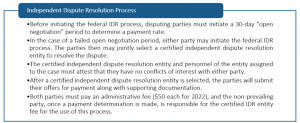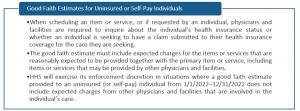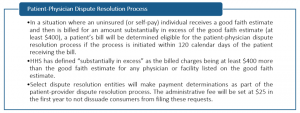Happy Thursday! Enjoy your NCMS Morning Rounds.
October 14, 2021
HHS Study Finds COVID-19 Vaccine Linked to Saving Lives for Older Americans
A new report from the U.S. Department of Health and Human Services (HHS) shows that COVID-19 vaccinations may have helped prevent hundreds of thousands of new COVID-19 infections and tens of thousands of deaths among seniors. The study shows that COVID-19 vaccinations were linked to a reduction of approximately 265,000 COVID-19 infections, 107,000 hospitalizations, and 39,000 deaths among Medicare beneficiaries between January and May 2021.
The report reaffirms the importance of COVID-19 vaccinations in saving lives and controlling the pandemic. People 65 years and older are at a higher risk of becoming severely ill or death from COVID-19, which is why it’s so important to be vaccinated.
Learn more about the COVID-19 vaccine and if you have not yet been vaccinated remember it is free and you can find a place near you by visiting vaccines.gov
Read more about the report here.
Curi Launches New Advisory Business to Support Physicians & Medical Practices
On Wednesday, October 13, Curi, an advisory firm for physicians and medical practices, announced the launch of Curi Advisory, a new business unit dedicated to helping independent physician practice leaders protect, optimize, and grow their businesses.
Curi Advisory offers a proprietary business intelligence platform and data-driven consulting services that work to pinpoint practices’ specific needs and identify opportunities to help these businesses thrive. The core offerings within Curi Advisory at launch include the Arrowlytics technology platform and a host of practice operations, risk solutions, and health policy consulting services.
Read the full October 13 press release here.
HHS Releases Part 2 of Surprise Billing Requirements
On September 30, the Department of Health & Human Services (HHS) released the Requirements Related to Surprise Billing; Part II interim final rule (IFR), which builds on the Requirements Related to Surprise Billing; Part I IFR and the Requirements Related to Air Ambulance Services, Agent and Broker Disclosures, and Provider Enforcement proposed rule to continue implementing the No Surprises Act. This IFR addresses:
- the requirements for the independent dispute resolution (IDR) process that out-of-network physicians and health plans may use for emergency services and non-emergency services provided by out-of-network physicians at in-network facilities in certain circumstances; and
- good faith estimates for services and items that physicians must provide to an uninsured (or self-pay) individual; and
- the patient-physician dispute resolution process if the actual billed charges are substantially in excess of (at least $400) the expected charges included in the good faith estimate.
The Physicians Advocacy Institute (PAI) is extremely concerned that the IDR process established in this IFR does not reflect the intent of the No Surprises Act. The No Surprises Act does not dictate preference of in-network rates to determine the payment amount. Rather, it directs the arbiter to consider all factors to resolve payment disputes (e.g., prior contracted rates during the previous four plan years, relative market share of both parties involved, the physician’s training and experience, patient’s acuity, and complexity of furnishing the item or service). By requiring certified IDR entities to select the median in-network rate as the payment amount, and to only deviate if the physician presents credible information to do so, assumes that the health plan’s rate is accurate and unfairly places the burden on physicians to justify their out-of-network rate. PAI is concerned that this approach biases the IDR entity toward one factor, specifically the median in-network rate, as opposed to evaluating all factors equally, as is the intent of the No Surprises Act.
PAI plans to submit detailed comments on these provisions as well as others in the coming weeks. This IFR is Part II of III, with part III slated to be released later this year. PAI will continue its advocacy on behalf of physicians through the entire process. For a full summary of the Part II IFR, please click here. For an infographic of the open negotiation and IDR process, please click here. Key highlights of the Part II IFR are provided below:
In the News
CDC, AMA Launch Campaign Warning of #FluFOMO, Becker’s, 10-12-21
Learning Opportunity
Back Porch Chat: Medicaid Managed Care Hot Topics Thursday, Oct. 21 | 5:30-6:30 p.m.
Please join NC Medicaid Chief Medical Officer (CMO) Dr. Shannon Dowler, along with all the NC Medicaid Managed Care plan CMO’s, for our October Back Porch Chat.
They will review new COVID-19 surge response offerings from NC Medicaid, including a COVID-19 vaccine incentive program for NC Medicaid beneficiaries. They will also review how to help a patient who needs Behavior Health and Individual Developmental Disabilities (I/DD) Tailored Plan behavioral health services move from a standard plan to NC Medicaid Direct.




